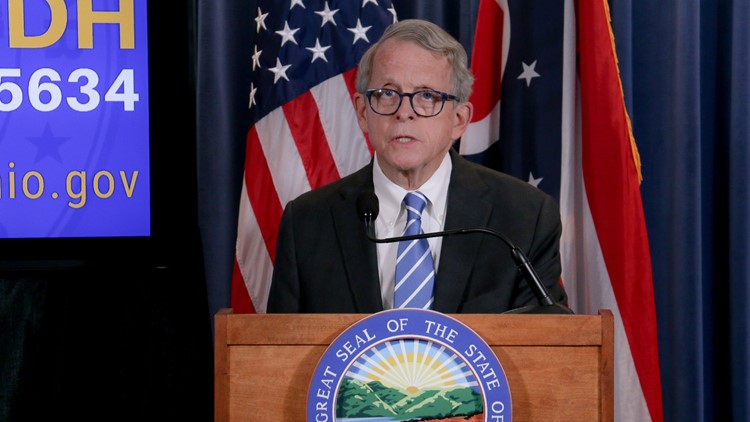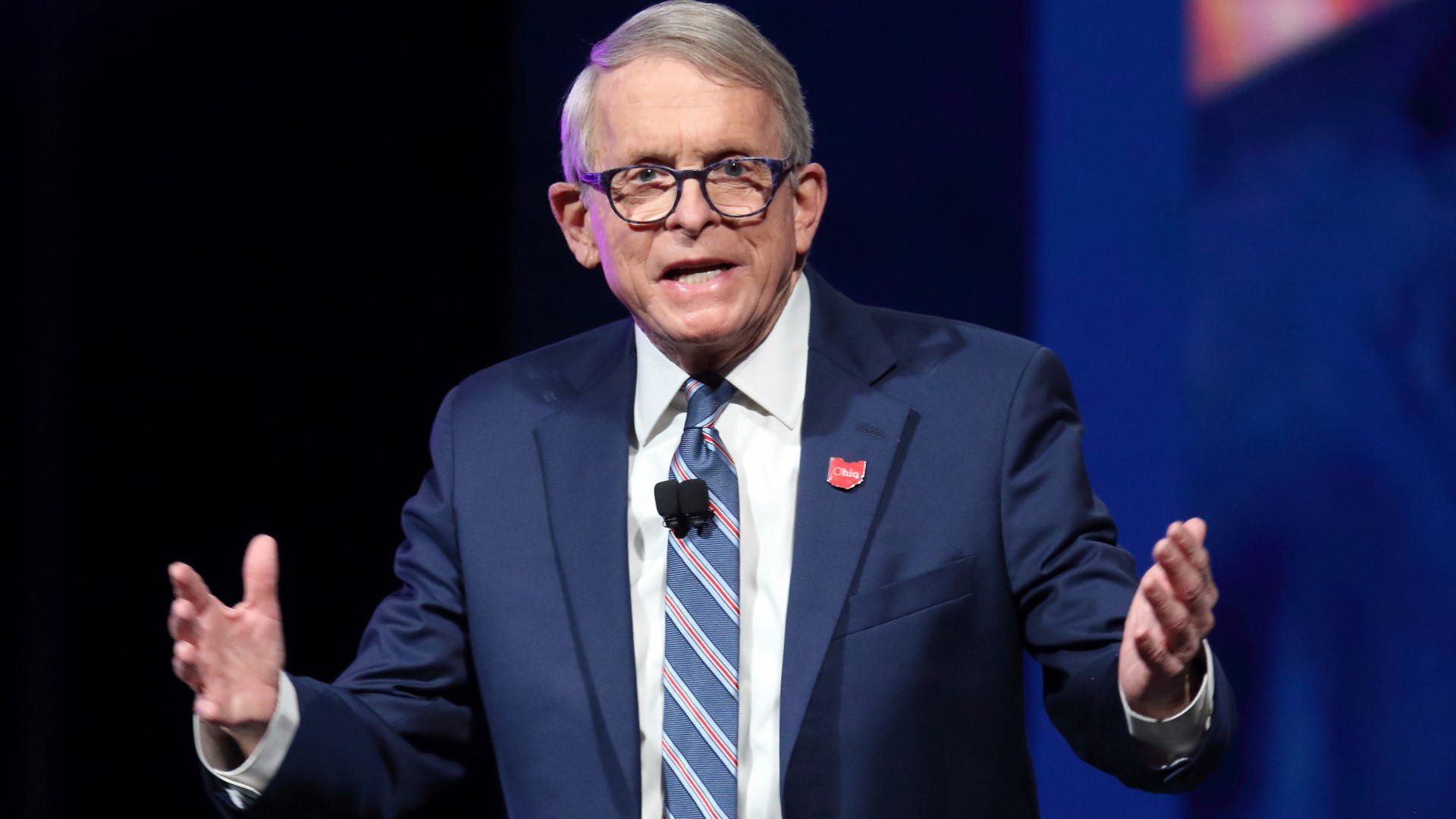Early during the coronavirus outbreak, Ohio’s Republican governor appeared prophetic with his decisive steps to ban spectators from a sports expo, shut down all schools before any other state and put a stop to the presidential primary.
Since then, Gov. Mike DeWine has backed away from a statewide mask mandate, faced a mutiny within his party over business closures and juggled listening to both health experts and those who doubt them. For DeWine, navigating a path out of the state’s pandemic shutdown has been a bumpy one.
His aggressive moves that won early praise have tilted toward messages of personal responsibility, following the direction of governors in Republican-leaning states who resisted wide crackdowns. But now that the virus is surging again in Ohio, DeWine is taking what he calls a “surgical, precise approach” by requiring masks in just the hardest-hit counties even as some states are issuing wider and stricter measures.
The question is: Can this balancing act work?
It’s a strategy that has encountered criticism from all sides: those who think that his edicts have gone too far and those who believe he’s backed down from protecting the public.
“The same people who are telling me this mask mandate is crazy, are the same people who are saying to me, well, you can’t shut business down,” DeWine, 73, said in an interview with The Associated Press last week. “I agree we have to keep business open, but their failure to wear a mask does not help businesses move forward.”
He's scheduled a statewide address for Wednesday afternoon to talk about the growing spread of the virus.
DeWine, who has been elected to almost every position in Ohio during a 40-year political career, has struck a consistent tone about the dangers of the virus while standing alongside a knowledgeable health director, Dr. Amy Acton, who resigned last month amid harsh pushback for exercising her emergency powers to close businesses and keep people home for weeks.
But DeWine has wavered on mask-wearing. In April, he announced a statewide requirement inside all businesses and then changed his mind the next day, dropping the order for customers, saying people found the idea “offensive.”
Several of the state's cities issued their own mask rules, in response to rising case numbers, before the governor said a week ago that masks would be required for a handful of counties that he called “red hot.”
DeWine has also been careful not to condemn other Republicans, including President Donald Trump, any time they’ve downplayed the threat. When Vice President Mike Pence stopped at an auto plant in Ohio last month, DeWine stayed away, explaining that he and his wife were still avoiding crowds.
Ohio isn’t a hot spot for the virus like Florida, Texas or Arizona. Still, it has seen a steady and troubling rise in cases. Last week, the state saw its highest number since reopening with more than 1,500 confirmed cases in a single day.
Three states once hard-hit by the coronavirus — New York, New Jersey and Connecticut —- recently added Ohio to its travel advisory. It asks that people entering those states from Ohio, and 21 other states, quarantine for 14 days.
Polls in Ohio have shown Republicans and Democrats alike giving DeWine high marks for his performance during the outbreak.
Even those who disagree with DeWine’s specific policies believe he’s doing what he thinks is best for the state, said Jai Chabria, a Republican strategist who was a senior adviser to former Ohio Gov. John Kasich.
“And that’s a departure from the way in which they perceive politicians,” he said.
Michelle Shaffer, who lives near Columbus, said she didn’t vote for DeWine but was impressed with the governor’s early response. "I feel now that he’s just bending to the will of politicians and protesters,” she said.
Some Democratic lawmakers agree.
“The shift DeWine has undergone in these past few weeks is going from a leader to a politician,” said Rep. Stephanie Howse. “That’s the real shift. That is what happens when you buckle under pressure.”
Howse, leader of the Ohio Legislative Black Caucus, is home recovering after testing positive for COVID-19 earlier this month. She said DeWine has caved to pressure from his party to reopen the economy, calling it an example of the state making decisions “that value dollars over people's lives.”
But it’s those in DeWine's own party, who in the past applauded his strong anti-abortion beliefs, who have been giving him the most grief.
A group of county Republican leaders in one of the state’s most reliably conservative regions told DeWine in a letter last month that his “big government approach” had caused wide economic damage and that “you have disappointed your party faithful.”
Republicans who control Ohio’s Legislature have been just as vocal, accusing DeWine and his administration of bypassing lawmakers before effectively shutting down the presidential primary in March and overstepping his authority while directing Acton to issue emergency health orders.
House Majority Leader Bill Seitz called the decisions “substantial infringements on what we believe to be the legislative process."
The criticism coming from Republicans seems to have influenced DeWine’s direction and may have swayed him from putting broad restrictions on the economy again, said Senate President Larry Obhof. “I think the Legislature would respond very badly to another attempt at a shutdown," he said.
DeWine said he's worried about controlling the virus, not his critics.
“I know that’s the biggest threat to us moving forward. It’s the biggest threat to jobs. It’s the biggest threat to families’ safety, security. So I’m going to stay focused on that. That is my mission," he said.



